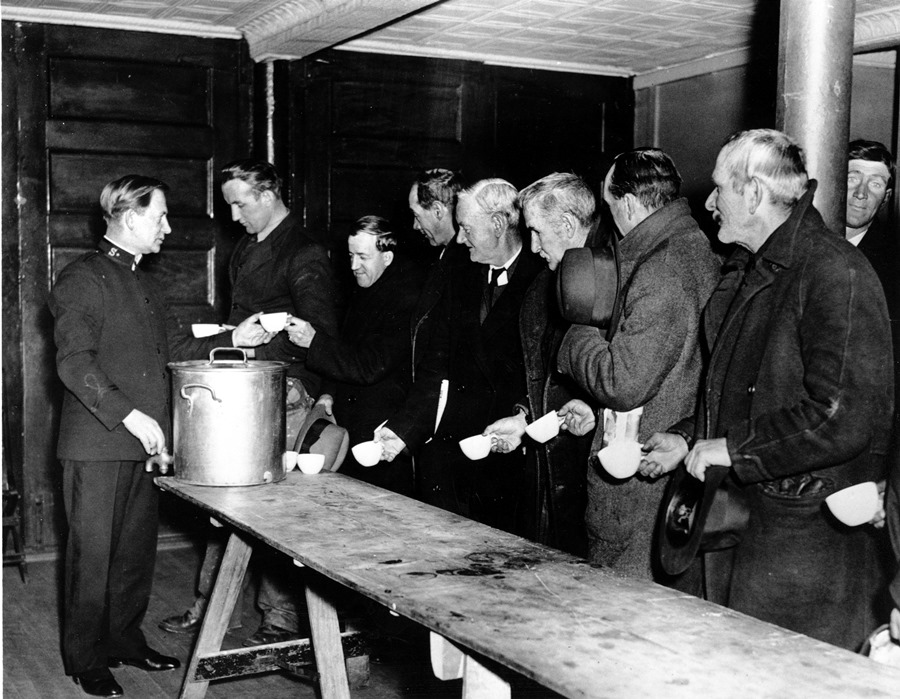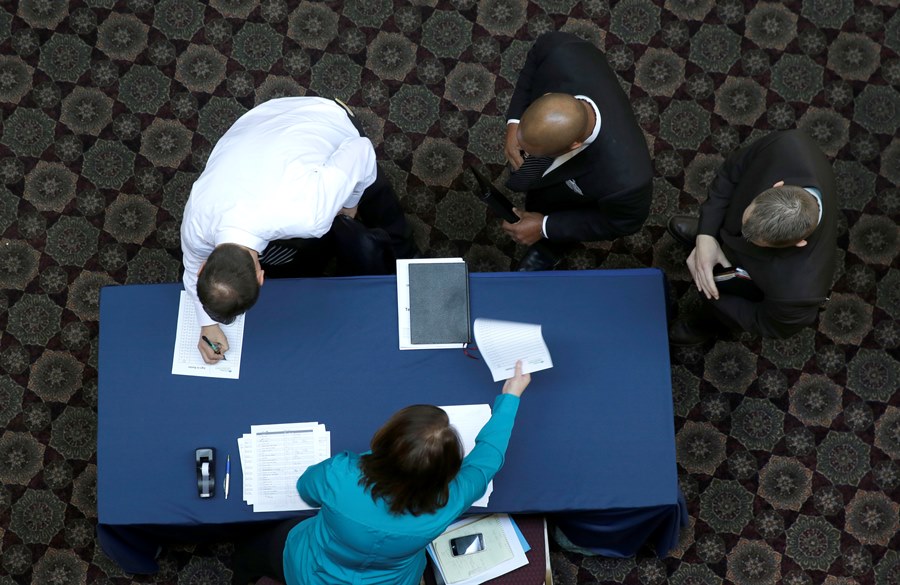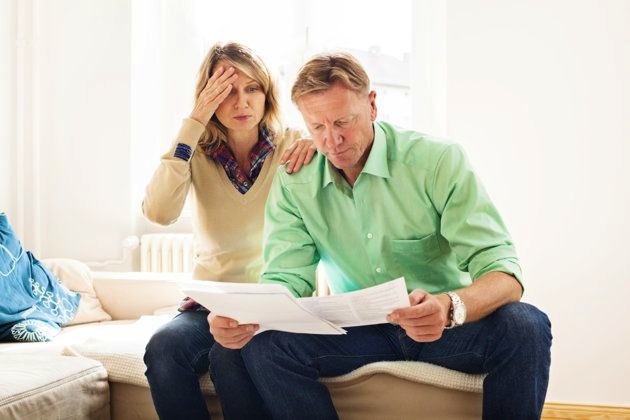While some industry experts say there's little or nothing to fear on the retirement front, deep down inside we all know it's not true.
How else to explain how worried everyone is about retirement?
Insecurity on the job or a complete absence of employment, low and frozen salaries, high expenses and unpredictable markets have thrown people into a tizzy over how they're going to afford to retire, or how they might be able to cheat their retirement demons by continuing to work.
Why, it's enough to give a person gray hair (assuming they don't have it already).
And now a new report from the National Association of Government Defined Contribution Administrators, Inc. has provided a whole host of statistics that is just about guaranteed to strike terror into the heart of anyone who's ever contemplated retirement — even as an intellectual exercise.
It certainly has done so for them; here's their opening sentence: “The unfortunate state of Americans' financial preparedness for retirement is well-documented, and may be summed in two words: NOT READY.” (Bold caps theirs, by the way.)
One thing they're super-worried about is the looming disaster of health care costs for retirees — something that they say nobody is ready for, and that most people don't even seem to realize will become a major problem.
We've pulled out 10 statistics from NAGDCA's report that seem to us to rank pretty high on the nightmare list.
We offer them here for your delectation—and to keep you awake at night when you need to stay alert and figure out how to get more money to pay those senior bills.

1. 22%
Just 22% of workers are very confident they will have enough money in retirement, according to the Employee Benefit Research Institute's 25th annual “Retirement Confidence Survey.”
 2. 45%
2. 45%
According to recent congressional testimony, 45% of Americans have saved exactly nothing — zero, zip, nada — toward retirement.
In fact, although lots of higher-net-worth folks have — and use — retirement accounts, those on the lower end of the spectrum are truly ill-prepared to venture forth into retirement.
The testimony said, “Overall, the average working household has little to nothing saved for retirement. The median retirement-account balance is only $3,000 for working-age households and only $12,000 for households approaching retirement. In two-thirds of working households with earners between ages 55 and 64 years, at least one earner has saved less than one year's income for retirement.”
 3. Not seen since the Great Depression
3. Not seen since the Great Depression
According to the report, that's the magnitude of the financial challenges that will be faced by upcoming retirees — the first generation since that terrible time to do so.
 4. 20 years beyond age 65
4. 20 years beyond age 65
That's the expected additional lifespan of a woman of 65, two years longer than a man, but it's likely to bring her a lot of financial grief.
Women will face even greater challenges than men (see #3) because a) they live longer and b) they make less.
Add to that the fact that, according to Department of Labor statistics, they're more likely to have worked “part-time jobs that don't qualify for a retirement plan or interrupt their careers to take care of family members, resulting in lower retirement plan savings.”
Despite being diligent savers when they do have access to retirement accounts, the fact that women are not inherent risk-takers works against them in the market, driving down returns on their savings (although they will, of course, have larger balances than men who take crazy risks and lose everything — just not large enough balances to live on for another 20 years).
 5. One out of six
5. One out of six
Just one in six employers offers health insurance coverage to retirees these days.
And that's a very big deal, since the costs of health care in retirement make up the bulk of our list.
In days gone by, when employers provided defined benefit plans (remember those?) that paid a steady fixed pension every month, they also frequently offered health coverage to people who had spent a good chunk of their lives at the firm growing the business.
But no more. Now health insurance coverage during retirement can be summed up in one word for most people: Medicare.
Some lucky ones have six words: Medicare and long-term care insurance. But if not, you're on your own when disaster strikes.
 6. $220,000
6. $220,000
That's how much the average 65-year-old couple can expect to part with over the next 20 years in out-of-pocket costs for health care, thanks to not having any insurance to pick up the tab.
That's $220,000 more that you'll need to retire, and that's if you don't get hit with some kind of catastrophic illness or injury.
 7. 5.8%
7. 5.8%
That's the projected annual growth rate for health care spending through 2022.
Assuming a standard retirement projection based on withdrawing 4% per year to live on during retirement, so that you don't touch the principal and have enough to live on for the rest of your life, where does that leave you?
You do the math. Sure you can. Use a calculator.
 8. 62%
8. 62%
That's all the average retiree can expect Medicare to pay of his health care expenses, once it finally kicks in.
Congress decided when it passed the Patient Protection and Affordable Care Act of 2010 that it was going to beat back whatever it could of the program's budget-deficit projections by mandating “various cost-containment measures,” the report said. “For the most part, the savings accrue to the federal government.”
Yep, that's right. The government, which has the freedom to bring in more money via higher taxes and other means.
Not to you — and you can't raise your retirement income, short of going back to work. So you'll have less to spend on other things, like food and that roof over your head.
 9. 38%
9. 38%
That's how much of your medical expenses you'll have to pay when you file a claim with Medicare.
In case you're wondering how your medical expenses will shake out, the report very kindly broke them down as follows: 23% for out-of-pocket prescription drug expenses; 32% for Medicare premiums for parts B and D; and — the whopper — 45% for Medicare copays, cost sharing and deductibles.
 10. $200,000+
10. $200,000+
Remember we mentioned long-term care insurance?
Well, if you don't have it and it turns out you need it, the figure immediately above is what you could end up paying for a single year in a skilled nursing facility (read “nursing home”) or a high-end assisted living facility (particularly if costs continue to escalate).
How does that fit into the retirement budget?
© Touchpoint Markets, All Rights Reserved. Request academic re-use from www.copyright.com. All other uses, submit a request to [email protected]. For more inforrmation visit Asset & Logo Licensing.






